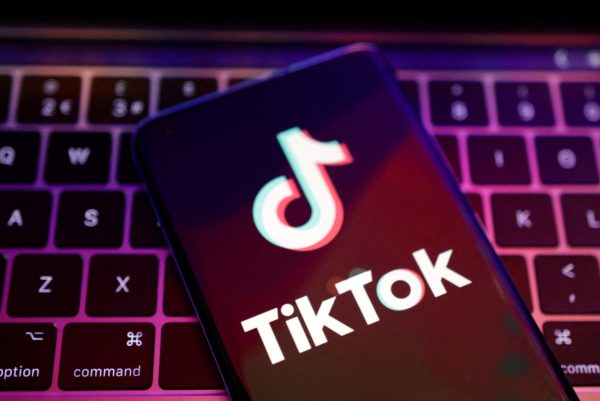OPINION: Rise of Global Anti-Semitism Demands a Global Unified Response
Just one example of the rise in global anti-Semitism can be seen in the recent desecration of tombstones in a Jewish cemetery in France.
Hate takes many shapes and forms. In our hotly contentious sociopolitical atmosphere, racism and homophobia have taken center stage. Quietly, however, another older type of hate has been growing in the background and has only recently been brought to the forefront in American society.
In a twitter barrage last week, newly-elected Democratic representative Ilhan Omar reignited the flames of anti-Semitism when she suggested that Jewish money was behind America’s support of Israel by saying “It’s all about the Benjamins.” If this were an isolated event by a politician, it would be understandable to let it slide – people make mistakes. This, however, was not Omar’s first anti-Semitic remark; in the past she claimed that Israel “has hypnotized the world.” The response from many members of her own party was not particularly encouraging, with Representative Max Rose saying, “It’s time that we moved on.” Her initial comments, and the pace at which our nation moved on from them, lends itself to a worrying global trend.
Anti-Semitism has a long and complicated global history, but understanding what anti-Semitism entails is the first step towards recognizing it. According to the State Department, anti-Semitism is, among other things, “calling for, aiding, or justifying the killing or harming of Jews…making…stereotypical allegations about Jews…saying that the existence of a State of Israel is a racist endeavor.” In short, anti-Semitism is any hostility or prejudice against those who believe in Judaism.
Internationally, anti-Semitism is quietly on the rise once again. According to a survey by CNN, 20 percent of Europeans believe that Jews have “too much influence in media and politics.” While it is true that, according to the survey, 44 percent of Europeans believe that anti-Semitism is a growing problem, 18 percent of those people believe it is a response to the “every day behavior of Jewish people.” Just this week, the Washington Post reported that a Jewish cemetery in France was desecrated with swastikas – the symbol of the German Nazi party from the 1930s through World War II – scrawled on 80 graves.
The rise of anti-Semitism nationally is also undeniable, and Omar’s insensitive statements are only one example of this reality. In a report from 2017, the Anti-Defamation League reported that there was a 60 percent increase in anti-Semitic attacks in the United States from the prior year. One of the more notable events was last year’s “Unite the Right” rally in Charlottesville, Virginia, where hundreds of neo-Nazis and white supremacists chanted that the “Jews will not replace us.”
Hatred is unavoidable, and there will always be anti-Semitic people, but to have ideas chanted in an alt-Right rally be echoed by members of our government is something that is eye-opening.
While these statistics are shocking, connecting it to how students are impacted gives even a greater cause for alarm. According to the same ADL report, in 2017, Florida had the fourth most anti-Semitic attacks in the country. There was a 94 percent increase in anti-Semitic attacks in K-12 schools and an 89 percent increase on college campuses.
Speaking on the rise of anti-Semitism, Olympic Heights Courtney Reiff, an Olympic Heights senior and prevalent member of the Jewish youth group BBYO, says, “A lack of education of prior anti-Semitic attacks is one of the main causes of anti-Semitism today.” While Reiff hasn’t experienced any anti-Semitism firsthand, she believes that the shooting at the Tree of Life Synagogue in Pittsburgh on Oct. 27, 2018, wherein 11 worshippers lost their lives should be “a fresh reminder that we need to do more to combat anti-Semitism.”
This all lends itself to a somber reality: anti-Semitism is back in full-force. As French President Emmanuel Macron said in a press conference last week, anti-Semitism is at a level “unseen since World War II.” Anti-Semitism has grown to be an issue once again on the international, national and local levels. This is not something society can ignore; society can not pick and choose which hate to focus on. If society wants to battle hate, it must do so universal, anti-Semitism included.











Ivy Kaufman • Apr 28, 2019 at 11:47 am
Thank you for bringing light to Olympic Heights High School with regards to this very real problem. Your article made me sad but it is the unfortunate truth in the world we live in today.
Margo Buksbaum • Mar 10, 2019 at 8:20 pm
Jacob,
Excellent article ! Anti -Semitism is like a snake in the grass. Always there to rear it’s ugly head and reappear again.
It is a plague upon human decency fostered by those who need someone to blame for their problems and resentments.
Your article speaks for all of us who long for a time when this scourge will be wiped off the Earth,when nations everywhere can find a way to make it happen. It starts with Jacob. You are an inspiration to all.
Grandma Margo